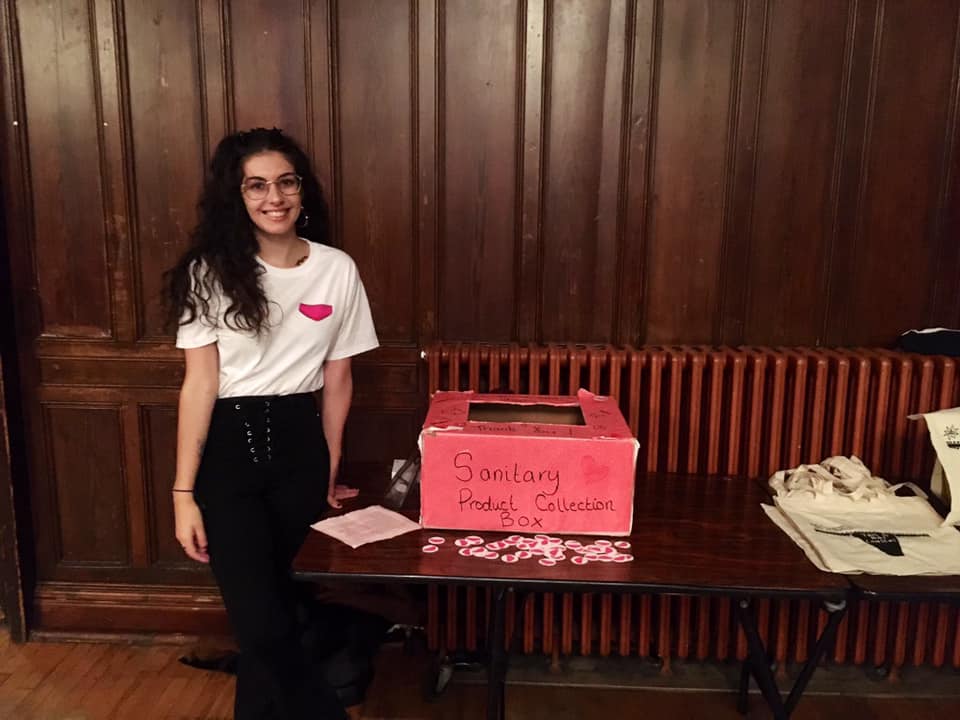The students tackling menstruation stigma and period poverty

Fourth-year English Literature student, Saffron Roberts, started holding sanitary product collections in March 2018 to tackle period poverty and stigma around menstruation. Since, she’s been joined by student Rosie Martland in the effort to collect donations for local foodbanks, women’s and homeless shelters.
In a country with free access to healthcare, women’s basic healthcare, specifically her period, is still woefully neglected. Over the last few years, the gendered poverty gap has become a more prominent topic of conversation, so as of March 2018, we decided to do something to help, and thus Period Poverty University of Edinburgh was born. It was clear that people were willing to donate spare sanitary products, they just lacked a convenient means of doing so.
Therefore, we provide donation points for mooncups, tampons, pads, etc., at the University of Edinburgh, all of which we then take to Streetworks, foodbanks, and Edinburgh women’s shelters, to help reduce the gendered limitations on breaking free from cycles of homelessness and domestic abuse. Periods are a basic, and constant, concern for many women; how can women be expected to succeed in life if their basic biological needs are proving a barrier to equality?
So our project has three clear aims: to reduce the gendered impact of homelessness, across Scotland; to enable and encourage ordinary people to contribute donations in a convenient, and often fun way; to reduce the worldwide stigma around periods, as shame and embarrassment are huge contributors towards lack of access.

The collection box used for donations
Although, six months into our project, Scotland began giving free sanitary products to all women in education, thus reducing the impact of periods on access to education, this still omits so many women. Edinburgh Women’s Shelter informed us that, in situations of domestic abuse, sanitary products are often one of the first things that women are denied access to, as a power move. We want to help all women have free and convenient access to sanitary products, giving them one less thing to worry about during such difficult times. Our donations help women maintain everyday hygiene, in attempt to prevent their bodies becoming another barrier to their independence.
We have found that so many people across Edinburgh are enthusiastic and excited to donate and speak about these issues; we just want to give them a place to do so. We would love people to donate any sanitary products that they can at our donation points on campus or contact us directly on the Facebook page to get involved. Furthermore, we want our project to help people to see how easy it is to set up their own donation points for at-risk women at universities, workplaces, schools, and to develop their own thinking when it comes to periods; by talking about them without shame, we help to stop the stigma from thriving.

Some of the donations received from the collections
Follow the Period Poverty- University of Edinburgh page on Facebook
Read Saffron’s interview as part of EUSA’s “Spotlight on” series





Recent comments